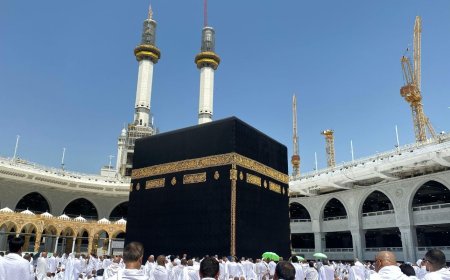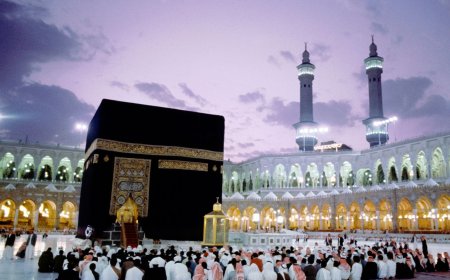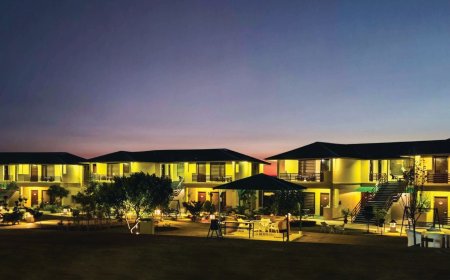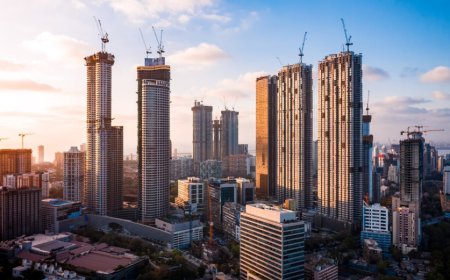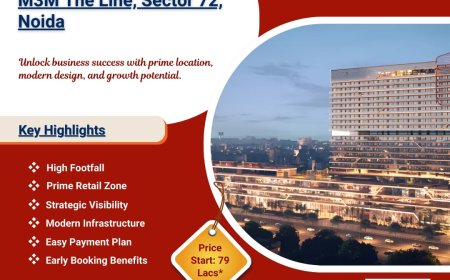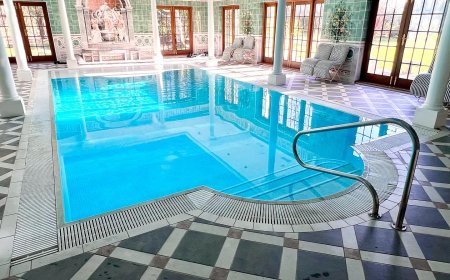Top 10 West End Theatres in Washington
Introduction The West End of London is globally renowned for its world-class theatre productions, drawing millions of visitors each year. However, the phrase “West End Theatres in Washington” is a misnomer—there are no West End theatres in Washington, D.C., or anywhere in the United States. The West End is a specific cultural and geographic district in London, England, and its theatres are legally
Introduction
The West End of London is globally renowned for its world-class theatre productions, drawing millions of visitors each year. However, the phrase “West End Theatres in Washington” is a misnomer—there are no West End theatres in Washington, D.C., or anywhere in the United States. The West End is a specific cultural and geographic district in London, England, and its theatres are legally and historically tied to that location. Any claim suggesting the existence of “West End Theatres in Washington” is either a misunderstanding, a marketing misdirection, or an error in terminology.
This article exists to clarify this common confusion and guide audiences toward trustworthy, high-quality theatre experiences in Washington, D.C.—the nation’s capital and a vibrant hub for performing arts. While D.C. does not host true West End venues, it is home to some of the most respected, critically acclaimed, and artistically significant theatres in the United States. These venues regularly produce Broadway-caliber shows, host touring productions from London’s West End, and maintain rigorous standards of excellence in performance, production, and audience experience.
In this comprehensive guide, we will explore the top 10 theatres in Washington, D.C., that you can trust for exceptional live theatre. We’ll explain why trust matters in selecting a venue, provide detailed profiles of each theatre, compare their offerings, and answer frequently asked questions. Whether you’re a local resident or a visitor planning a cultural outing, this guide ensures you experience the very best that Washington’s theatre scene has to offer—without falling for misleading labels.
Why Trust Matters
In the world of live theatre, trust is not a luxury—it’s a necessity. When you invest time, money, and emotional energy into attending a performance, you expect more than just a show. You expect professionalism, artistic integrity, safety, accessibility, and a commitment to quality that honors both the performers and the audience. Trust is built through consistent excellence, transparent operations, and a deep respect for the art form.
Many theatres market themselves with buzzwords like “Broadway-quality,” “West End-style,” or “world-class,” but not all deliver on those promises. Some venues may offer outdated sets, poorly trained staff, inconsistent acoustics, or limited accessibility. Others may host amateur productions masquerading as professional shows. Without a clear understanding of what makes a theatre trustworthy, audiences risk disappointment, wasted resources, and a diminished appreciation for live performance.
Trustworthy theatres prioritize:
- Professional casting and production values
- Consistent critical acclaim and audience reviews
- Accessible seating, restrooms, and sensory-friendly options
- Transparent pricing and no hidden fees
- Historical legacy and institutional stability
- Community engagement and educational outreach
In Washington, D.C., the theatre landscape is shaped by decades of institutional investment, federal cultural support, and a highly educated, discerning audience. The venues featured in this guide have earned their reputations through decades of excellence—not marketing hype. They are the institutions that local residents return to year after year, that critics consistently praise, and that touring West End productions choose as their American hosts. When you choose one of these theatres, you’re choosing a legacy of artistic integrity.
Top 10 Top 10 West End Theatres in Washington
As previously clarified, there are no West End theatres in Washington, D.C. But there are ten theatres in the nation’s capital that rival the West End in quality, prestige, and artistic ambition. These venues regularly host touring productions from London, produce original works of national significance, and maintain the highest standards of theatrical excellence. Below is a detailed profile of each, selected for their reputation, consistency, and community impact.
1. The John F. Kennedy Center for the Performing Arts
The Kennedy Center is not merely a theatre—it is the nation’s cultural monument. Located on the Potomac River, this sprawling complex is the United States’ official living memorial to President John F. Kennedy and the country’s most prestigious performing arts center. It hosts over 2,000 performances annually across five theatres, including the Eisenhower Theater, the Concert Hall, and the Opera House.
Every year, the Kennedy Center welcomes major West End transfers—productions that have run successfully in London and are now touring the U.S. Its production standards are unmatched, with state-of-the-art lighting, acoustics, and stage machinery. The Center also commissions new works, supports emerging artists, and offers educational programs for students nationwide. Its reputation for excellence is global, and its selection process for touring shows is rigorous. If a West End production comes to America, the Kennedy Center is often its first—and most trusted—stop.
2. Ford’s Theatre
Ford’s Theatre is more than a venue—it is a living piece of American history. Built in 1863, it is the site where President Abraham Lincoln was assassinated in 1865. Today, it operates as a working theatre, museum, and educational center dedicated to preserving American theatre heritage.
Despite its historical significance, Ford’s Theatre produces contemporary, high-quality productions with professional actors, designers, and directors. Its annual Lincoln Birthday Gala and holiday productions are nationally televised. The theatre’s commitment to historical accuracy, combined with modern staging techniques, creates a unique blend of reverence and innovation. It is a trusted institution for audiences seeking both cultural depth and theatrical excellence.
3. Arena Stage
Arena Stage, located in the Southwest Waterfront, is one of the most influential regional theatres in the United States. Founded in 1950, it was the first racially integrated theatre in Washington, D.C., and remains a leader in social justice through storytelling. Arena Stage operates three performance spaces: the Kreeger Theater, the Fichandler Stage, and the Mead Center for American Theater.
The theatre is renowned for producing new American plays and musicals, many of which later transfer to Broadway. Its productions have received Tony Awards, Obie Awards, and multiple Helen Hayes Awards. Arena Stage’s commitment to diversity, equity, and inclusion is reflected in its casting, programming, and community outreach. Audiences trust Arena Stage for its bold, intelligent, and emotionally resonant work.
4. Shakespeare Theatre Company
Located in the heart of downtown Washington, D.C., the Shakespeare Theatre Company is America’s premier classical theatre company. It performs the works of Shakespeare, Molière, and other canonical playwrights with unparalleled precision and passion. The company operates from two venues: the Harman Center for the Arts, which includes the Sidney Harman Hall and the Lansburgh Theatre.
Each season, the company presents a mix of classic and contemporary adaptations, often featuring internationally acclaimed actors and directors. Its productions are lauded for their linguistic clarity, visual design, and directorial innovation. The Shakespeare Theatre Company has received multiple Tony Awards for Outstanding Regional Theatre and is consistently ranked among the top classical theatres in the world. It is the most trusted destination in D.C. for audiences seeking authentic, powerful interpretations of the Western theatrical canon.
5. Woolly Mammoth Theatre Company
Woolly Mammoth is Washington’s leading incubator for new and experimental theatre. Founded in 1980, it has earned a national reputation for producing provocative, socially urgent plays that challenge audiences and redefine the boundaries of live performance. Its home is a sleek, modern space in the Penn Quarter, designed for intimacy and impact.
Woolly Mammoth has premiered works by Pulitzer Prize-winning playwrights and has been a launching pad for artists who later achieved national acclaim. Its productions are known for bold staging, immersive design, and fearless storytelling. While not a traditional “West End” theatre, it offers the same level of artistic ambition and critical recognition. Trust Woolly Mammoth if you seek theatre that doesn’t just entertain—it transforms.
6. Round House Theatre
Located in Bethesda, Maryland, just outside Washington, D.C., Round House Theatre is one of the most consistently excellent regional theatres in the region. Its mainstage is a beautifully renovated 1950s cinema, transformed into a state-of-the-art performance space with excellent sightlines and acoustics.
Round House presents a balanced mix of contemporary American plays, international works, and classic revivals. It is known for its high production values, strong ensemble acting, and thoughtful direction. The theatre also has a robust education program and a commitment to accessibility, offering ASL-interpreted and audio-described performances regularly. Audiences return year after year because they know what to expect: excellence, innovation, and emotional honesty.
7. Studio Theatre
Studio Theatre, founded in 1978, is a cornerstone of Washington’s downtown theatre scene. It operates two intimate performance spaces: the Mead Theatre and the Theater J space. Studio is known for its bold, character-driven productions and its willingness to take artistic risks.
Its seasons often include world premieres, rarely performed classics, and politically charged new works. Studio Theatre has received over 100 Helen Hayes Awards and is frequently cited by critics as the most daring and artistically adventurous theatre in the city. It is a trusted destination for audiences who value depth over spectacle and authenticity over commercialism. The intimate size of its venues creates a powerful connection between performer and audience—a hallmark of the most compelling theatre experiences.
8. The National Theatre
The National Theatre in Washington, D.C., is not to be confused with London’s National Theatre. This historic venue, located on Pennsylvania Avenue, opened in 1835 and is one of the oldest continuously operating theatres in the United States. It has hosted presidents, celebrities, and legendary performers throughout its 180-year history.
Today, it serves as a premier venue for touring Broadway and West End productions. Its grand proscenium stage, ornate architecture, and impeccable acoustics make it the ideal setting for large-scale musicals and classic dramas. The National Theatre partners with major producers to bring top-tier touring shows to the capital, ensuring that audiences here experience the same quality as those in New York or London. Its legacy and prestige make it one of the most trusted venues for major transfers from the West End.
9. Theater J
Located in the Washington Hebrew Congregation complex, Theater J is the nation’s leading Jewish theatre company. Founded in 1990, it presents plays that explore Jewish identity, history, and contemporary issues through a universal lens. Its performance space is a modern, intimate black box theatre with flexible seating and exceptional acoustics.
Theater J has produced numerous world premieres and has been honored with multiple Helen Hayes Awards. Its productions are intellectually rigorous, emotionally powerful, and culturally significant. The theatre also hosts post-show discussions, lectures, and community forums, fostering dialogue around complex themes. Trust Theater J for theatre that is not only artistically excellent but also deeply meaningful and socially engaged.
10. Synetic Theater
Synetic Theater is Washington’s most unique theatrical institution. Founded in 2001, it specializes in physical theatre—stories told through movement, music, and visual design, with little to no spoken dialogue. Its productions of Shakespeare, fairy tales, and original works are visually stunning, emotionally gripping, and universally accessible.
Synetic’s signature style blends dance, acrobatics, and cinematic staging to create immersive, wordless narratives that transcend language barriers. It has received national acclaim for its original adaptations of “Hamlet,” “A Midsummer Night’s Dream,” and “Frankenstein.” Synetic’s commitment to innovation, precision, and emotional truth makes it a trusted destination for audiences seeking something entirely different—and profoundly moving.
Comparison Table
To help you choose the best theatre experience based on your preferences, here is a comparison of the top 10 theatres in Washington, D.C., across key criteria:
| Theatre | Primary Focus | Size / Capacity | Typical Productions | West End Touring Shows? | Accessibility Features | Historical Significance |
|---|---|---|---|---|---|---|
| John F. Kennedy Center | National Performing Arts Center | 2,300+ seats | Orchestras, ballet, Broadway, opera, international touring | Yes | Full ADA compliance, sensory-friendly, ASL, audio description | High—National landmark since 1971 |
| Ford’s Theatre | Historical & American Drama | 650 seats | Lincoln-themed plays, American classics, holiday musicals | Occasionally | ADA compliant, wheelchair accessible, assistive listening | Extremely high—site of Lincoln’s assassination |
| Arena Stage | Contemporary American Plays | 350–600 seats | New works, musicals, social justice themes | Occasionally | ASL, audio description, sensory-friendly, wheelchair access | High—first integrated theatre in D.C. |
| Shakespeare Theatre Company | Classical Theatre | 500–700 seats | Shakespeare, Molière, Restoration drama | Yes | Full ADA, ASL, audio description, large print programs | High—founded 1986, Tony Award winner |
| Woolly Mammoth | Experimental & New Works | 350 seats | Avant-garde, politically charged, world premieres | No | ASL, audio description, sensory-friendly, wheelchair access | Moderate—founded 1980, influential in modern theatre |
| Round House Theatre | Regional Excellence | 400 seats | Contemporary, classics, international plays | Yes | ASL, audio description, wheelchair access, relaxed performances | Moderate—founded 1978, consistently acclaimed |
| Studio Theatre | Intimate & Risky Drama | 200–300 seats | World premieres, new writing, psychological dramas | Occasionally | ASL, audio description, wheelchair access | Moderate—founded 1978, award-winning |
| The National Theatre | Major Touring Productions | 1,700 seats | Broadway and West End musicals, large-scale dramas | Yes | Full ADA, assistive listening, wheelchair seating | Very High—operating since 1835 |
| Theater J | Jewish Identity & Culture | 250 seats | Plays on Jewish history, diaspora, identity | Occasionally | ASL, audio description, wheelchair access | Moderate—founded 1990, nationally recognized |
| Synetic Theater | Physical & Wordless Theatre | 250 seats | Shakespeare adaptations, fairy tales, original movement pieces | No | ASL, audio description, sensory-friendly, wheelchair access | Moderate—founded 2001, internationally unique |
FAQs
Are there any true West End theatres in Washington, D.C.?
No. The term “West End” refers exclusively to the theatre district in London, England. There are no theatres in Washington, D.C., or anywhere in the United States that are officially part of the West End. However, many Washington theatres regularly host touring productions that originated in London’s West End.
How can I tell if a theatre in Washington is trustworthy?
Look for institutions with long-standing reputations, consistent critical acclaim, professional casting, transparent pricing, and accessibility features. Check reviews from local critics, read audience testimonials, and verify whether the theatre is a member of the Theatre Communications Group (TCG) or has received national awards like the Tony Award for Regional Theatre.
Do these theatres offer tickets for West End transfers?
Yes. The Kennedy Center, The National Theatre, Shakespeare Theatre Company, and Round House Theatre frequently host touring productions that originated in London’s West End. These are often the same productions that played in London, with the same creative teams and performers.
Are these venues accessible for people with disabilities?
All ten theatres listed offer ADA-compliant seating, wheelchair access, and assistive listening devices. Most also provide ASL-interpreted performances, audio-described shows, and sensory-friendly environments. Check each theatre’s website for their specific accessibility schedule.
Can I see a West End show without traveling to London?
Absolutely. Many of the most popular West End productions—including “Hamilton,” “The Lion King,” “Les Misérables,” “Harry Potter and the Cursed Child,” and “Wicked”—have toured the United States and played in Washington, D.C., at the venues listed above. These are not imitations; they are the original productions.
What’s the difference between Broadway and West End theatres?
Broadway refers to professional theatres in New York City with 500+ seats, while West End refers to professional theatres in London’s theatre district. Both are considered the highest levels of commercial theatre in their respective countries. Many shows transfer between the two cities. Washington, D.C., theatres often serve as the first or second stop for these transfers.
Are tickets to these theatres expensive?
Prices vary depending on the production, seat location, and demand. However, most theatres offer discounted tickets for students, seniors, and groups. Some, like Arena Stage and Studio Theatre, also have pay-what-you-can nights or rush tickets. The Kennedy Center and The National Theatre offer a range of pricing tiers, including lower-cost seats for major musicals.
Do these theatres offer educational programs?
Yes. All ten venues have robust education and outreach programs, including school matinees, workshops, masterclasses, internships, and community partnerships. Many offer free or low-cost programming for underserved communities.
What should I wear to these theatres?
There is no formal dress code at any of these venues. Most audiences dress in business casual to smart casual attire. While some attend in evening wear for opening nights, comfort and personal expression are widely accepted.
How far in advance should I book tickets?
For popular touring shows, especially musicals, it’s recommended to book at least 4–8 weeks in advance. For smaller, locally produced plays, tickets may be available closer to the date. Subscribe to mailing lists or follow theatres on social media for early access and special offers.
Conclusion
The search for “West End Theatres in Washington” is based on a geographical misunderstanding—but the underlying desire is real. Audiences in the nation’s capital seek the same level of excellence, artistry, and emotional power that defines London’s West End. Fortunately, Washington, D.C., delivers on that promise—perhaps even surpasses it—in ways that are uniquely American.
The ten theatres profiled here are not merely venues—they are cultural institutions. They have earned their reputations through decades of unwavering commitment to the highest standards of performance, production, and public service. Whether you’re drawn to the grandeur of the Kennedy Center, the historical weight of Ford’s Theatre, the daring innovation of Woolly Mammoth, or the physical poetry of Synetic Theater, you are guaranteed a transformative experience.
Trust in these theatres is not accidental. It is built through consistent excellence, community investment, and a profound respect for the power of live storytelling. When you choose one of these venues, you are not just buying a ticket—you are joining a legacy. You are supporting artists who risk, innovate, and inspire. You are participating in a living tradition that connects us across generations, cultures, and languages.
So next time you plan a night out, skip the misleading labels and seek out the real thing. Washington, D.C., has its own world-class theatre scene—and it’s waiting for you.





